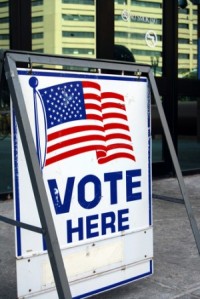Kentucky governor restores voting rights of over 100,000 felons, but does he have power to do so?

Image from Shutterstock.
The outgoing governor of Kentucky on Tuesday signed an executive order to restore the voting rights of convicted non-violent felons who have served their time and paid any required restitution. Previously, they had to apply individually to the governor’s office for a restoration of voting rights, and those who do not meet new criteria can continue to do so.
Gov. Steve Beshear said his order could affect the majority of 180,000 felons who have finished serving their sentences. Beshear’s order does not apply to felons whose crimes involved violence, or were convicted of bribery, treason or sex offenses, according to Associated Press, the Louisville Courier-Journal and Reuters.
Beshear said restoring voting rights encourages those who have served their time to become productive members of society. “All of our society will be better off if we actively work to help rehabilitate those who have made a mistake,” Beshear said.
However, opponents questioned whether the governor has the power to achieve this result simply by issuing an executive order.
“My issue with today’s action is not about the restoration of those rights, but the fact once again this governor has chosen to usurp the authority of the Kentucky General Assembly through executive order,” said minority leader Jeff Hoover of the state’s house of representatives in a written statement published in a separate Courier-Journal story. He contended that a state constitutional amendment, rather than an executive order, was required, Reuters reports.
Beshear asserts that the state constitution gives him the right to restore voting rights, Reuters reported.
The state’s legislature has repeatedly considered enacting a law that would achieve a similar result. However, bills approved by the Democrat-controlled state house have not passed muster with the Republican-controlled state senate. Some senate critics sought to impose a waiting period, as well as limit the types of eligible felons.
Beshear is a Democrat. Because he has served two terms in office, he was not allowed to run for a third consecutive term.



